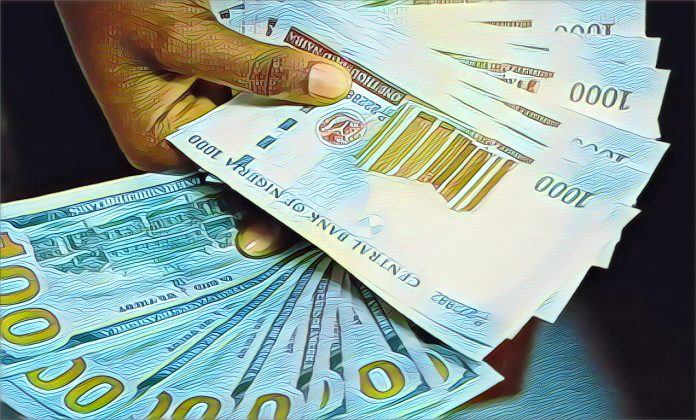Nigeria’s economy is undergoing a major shift as the government implements market reforms that aim to boost growth, stability, and social welfare. This was the main theme of the Nigeria Development and Finance Forum (NDFF) 2024 Conference, which took place on May 8 and 9 at the Transcorp Hilton in Abuja.
The NDFF conference, organized by Financial Nigeria International Limited, brought together public, private, social, and international sector leaders to discuss and share best practices on how to navigate the road to economic and social welfare transformation. The conference featured plenary sessions on fiscal policy, monetary policy, and social welfare, as well as special briefings and industry-focused sessions on the green economy, the blue economy, and state-level reforms.
According to Jide Akintunde, CEO of Financial Nigeria and Convener of NDFF, the conference was strategically timed to be held close to the first anniversary of the President Bola Ahmed Tinubu administration, which has embarked on market reforms that many stakeholders have advocated for in the last few years.
“Over the past months, the new government has removed fuel subsidies and unified the various official foreign exchange windows. These policies have resulted in economic difficulties for many Nigerians in the short term, but they can also help put the economy on the path of long-term stability, sustainable growth, and transformation. But there is an urgent need for adequate clarity and complementary policies to bolster investor and market confidence, and provide much-needed comfort for the citizens,” he said.
One of the key reforms that has attracted attention and debate is the liberalization of the foreign exchange market, which has led to a sharp depreciation of the naira and a rise in inflation. However, some experts at the conference argued that this was a necessary step to correct the market distortions and attract foreign inflows.
“The previous regime of multiple exchange rates and central bank interventions was unsustainable and detrimental to the economy. It created arbitrage opportunities, discouraged exports, encouraged imports, depleted reserves, and deterred foreign investors. The new regime of a single market-determined exchange rate is more transparent, efficient, and competitive. It will also help to diversify the economy away from oil dependence and boost non-oil revenues,” said Olayemi Cardoso, the Governor of the Central Bank of Nigeria (CBN).
Cardoso also assured that the CBN was committed to maintaining price stability and supporting the recovery of the economy, which exited the COVID-19 recession quickly but still faces sluggish growth and security challenges. He said the CBN would continue to use its monetary policy tools to manage liquidity, inflation, and interest rates, as well as provide targeted interventions to key sectors such as agriculture, manufacturing, health, and SMEs.
Another reform that has generated interest and optimism is the removal of fuel subsidies, which the government said was necessary to free up resources for infrastructure, health, and education. The government also appointed a Presidential Fiscal Policy and Tax Reforms Committee to make proposals for raising domestic revenue and improving public financial management.
“The fuel subsidy regime was a huge drain on the public purse and a source of corruption and inefficiency. It also benefited the rich more than the poor, who suffer from poor public services and infrastructure. By removing the subsidies, the government can save over N1 trillion annually and invest it in more productive and inclusive areas. The government is also working on expanding the tax base, reducing leakages, enhancing compliance, and simplifying the tax system,” said Zainab Ahmed, the Minister of Finance, Budget and National Planning.
Ahmed also acknowledged that the removal of fuel subsidies and the exchange rate unification had increased the cost of living for many Nigerians and eroded their purchasing power. She said the government was taking measures to ease the impact and protect the vulnerable segments of the society.
“To cushion the effect of the reforms, the government has released cereals from the grain reserve, provided subsidized fertilizer to farmers, capped retail fuel and electricity prices, implemented a civil service wage award, and suspended the VAT on diesel. The government is also implementing a social protection program that covers cash transfers, school feeding, health insurance, and job creation for the poor and unemployed,” she said.
The NDFF conference also highlighted the opportunities and challenges of the green economy and the blue economy, which are emerging as new frontiers for sustainable development. The green economy refers to the economic activities that are environmentally friendly and low-carbon, while the blue economy refers to the economic activities that are based on the ocean and its resources.
Some of the speakers and panelists at the conference shared their insights and experiences on how Nigeria can leverage these economies to diversify its income sources, create jobs, enhance food security, mitigate climate change, and conserve biodiversity.
The conference also showcased the reform agenda and investment opportunities in at least two states of the federation, namely Lagos and Kano, which are the commercial and industrial hubs of the country. The governors of the two states, Babajide Sanwo-Olu and Abdullahi Ganduje, presented their vision and achievements in improving the business environment, infrastructure, security, and social services in their respective domains.
The NDFF conference, which was attended by over 500 participants, both physically and virtually, was widely praised as a timely and relevant platform for advancing the discourse and action on Nigeria’s economic and social welfare transformation. The conference also received support from various partners and sponsors, including the World Bank, the African Development Bank, the European Union, the UK Department for International Development, the US Agency for International Development, the Nigerian Export-Import Bank, the Nigerian Investment Promotion Commission, the Nigerian Economic Summit Group, the Lagos Chamber of Commerce and Industry, and the Kano Chamber of Commerce, Industry, Mines and Agriculture.
Source: BusinessDay



